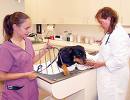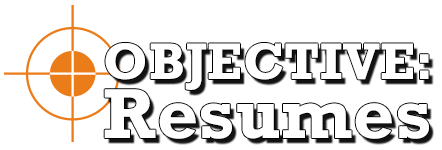
Traditionally, entry into veterinary school has been nearly as difficult to accomplish as entry into a credentialed M.D. (Medical Doctor) program. Like those seeking to become physicians, many applicants make the choice to study abroad, where the academic requirements are less stringent. What of those unwilling to relocate, yet still burning with the desire to contribute to the health and well being of animals?
Some decide to pursue training resulting in qualifications as a Veterinary Technician: an Associate of Science degree, which includes clinical rotations in veterinary teaching hospitals, as well as State Registration. Upon attainment of these credentials, the aspirant seeks employment, usually within a private or group practice or a research facility. Career hopefuls can choose to apply their knowledge to large animals, such as ungulates (i.e., horses and cows) or small animals (i.e., domestics such as cats, dogs, and rabbits as well as “exotics” such as some birds and lizards).
Whether recently credentialed or possessed of practical experience, all Registered Veterinary Technicians perform varied procedures that, interestingly but perhaps not surprisingly, mirror those of Registered/Operating Room Nurses, Dental Technicians, Imaging Technicians, and Diagnostic Laboratory Technicians supporting the treatment of human patient populations. Their resumes, therefore, must reflect and describe their clinical duties with both keywords and descriptive phrases. Monitoring and recording of animals’ vital statistics, processing and analysis of blood samples and bodily exudates, dispensation of oral and subcutaneous medications, administration of anesthesia, and assistance with surgical procedures not limited to spaying/neutering, removal of cysts, scaling of gums, and extraction of teeth are the primary functions that should feature, and be described in greater detail, on veterinary technician resumes. In the field of veterinary medicine and research, practitioners are also bound to uphold relevant legal and ethical considerations as mandated by individual States.
The majority of veterinary technicians in private veterinary practice are required to interact with the owners, or humans, of the pets to be diagnosed and treated. As many individuals perceive their animals as members of their family, such interactions demand patience and diplomacy. Therefore, those seeking to enter or remain gainfully employed in this industry should highlight strong client relations skills on their veterinary technician resumes.
By striking the proper balance between clinical, compliance-related, and communicative competencies, resumes for veterinary technicians can serve as effective tools for securing employment and progressing within this competitive field.Â
Similar Articles resume content
- Your Resume: Succinct and Boring or Detailed and Powerful? - May 13th, 2010
- Must I Customize My Resume for Each and Every Job? - March 24th, 2010
- Key in Those Keywords - November 10th, 2009
- By Any Other Name - November 3rd, 2009
- The Awards Ceremony - October 30th, 2009
Similar Articles resume writing
- Your Resume: Succinct and Boring or Detailed and Powerful? - May 13th, 2010
- Must I Customize My Resume for Each and Every Job? - March 24th, 2010
- Key in Those Keywords - November 10th, 2009
- Resumes for Writers - October 27th, 2009
- Spruce It Up! - October 23rd, 2009
